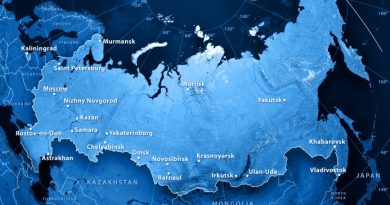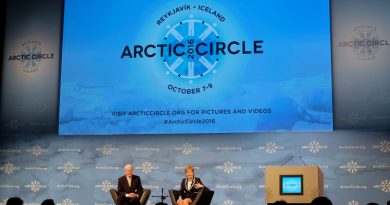Denmark, U.S. affirm need to ‘maintain and build situational awareness’ in the Arctic
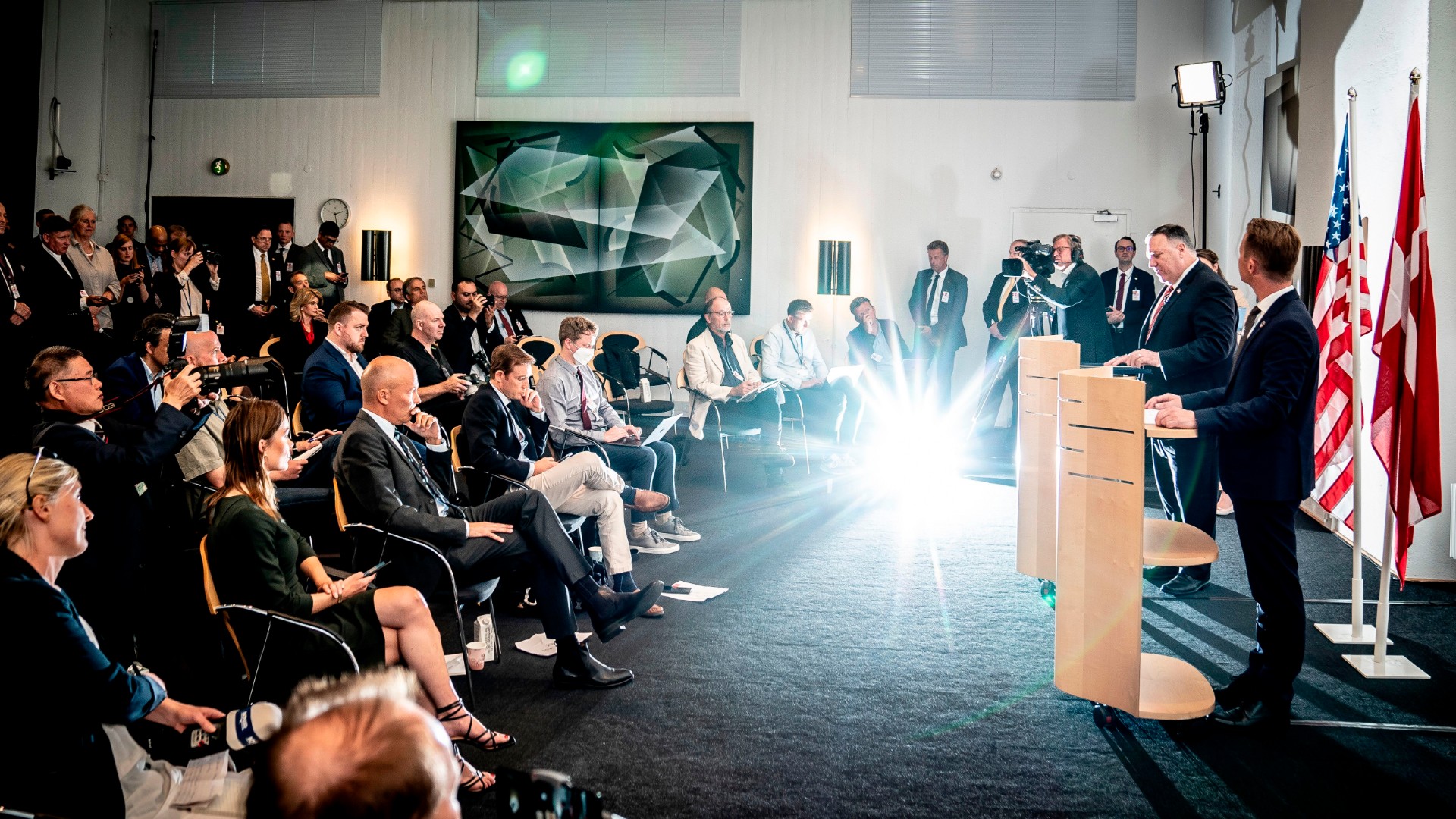
U.S. Secretary of State Mike Pompeo and Denmark’s Foreign Minister Jeppe Kofod wrapped up their meeting on Wednesday, with both countries reaffirming their commitment to Arctic cooperation and coordination.
“As two of only five Arctic coastal states, the Arctic is a key interest to the Kingdom of Denmark and to the United States,” Danish Foreign Minister Jeppe Kofod said in his opening statement, posted on the U.S. Department of State website.
He also welcomed the reopening of the U.S. consulate in Nuuk, Greenland, an autonomous territory within the Kingdom of Denmark, on June 10.
“Today, we reaffirmed our commitment to cooperate and coordinate closely in the Arctic in full respect of the unique constitutional construction of the kingdom,” Kofod said. “I’m glad to see the U.S. commitments to increased economic engagement being implemented with the reopening of the U.S. consulate in Nuuk and also project funds.”
“A new day for the United States and Greenland.”
Pompeo said that the consulate reopening marked a new chapter in the Greenland – U.S. relationship.
“It’s a new day for the United States and Greenland,” Pompeo said.
“Reopening the U.S. consulate in Nuuk reinvigorates an American presence that was dormant for far too long. And the United States has also signed new memorandums of understanding to cooperate with our partners in the Kingdom of Denmark that cover a wide range of areas, like growing Greenland’s mining and energy sectors through transparent investment, helping manage land and fisheries, increasing tourism, and much, much more. And we’ll keep working to ensure that our Greenlandic neighbors benefit fully from the presence of Thule Air Force Base, an issue that matters an awful lot to all of us.”
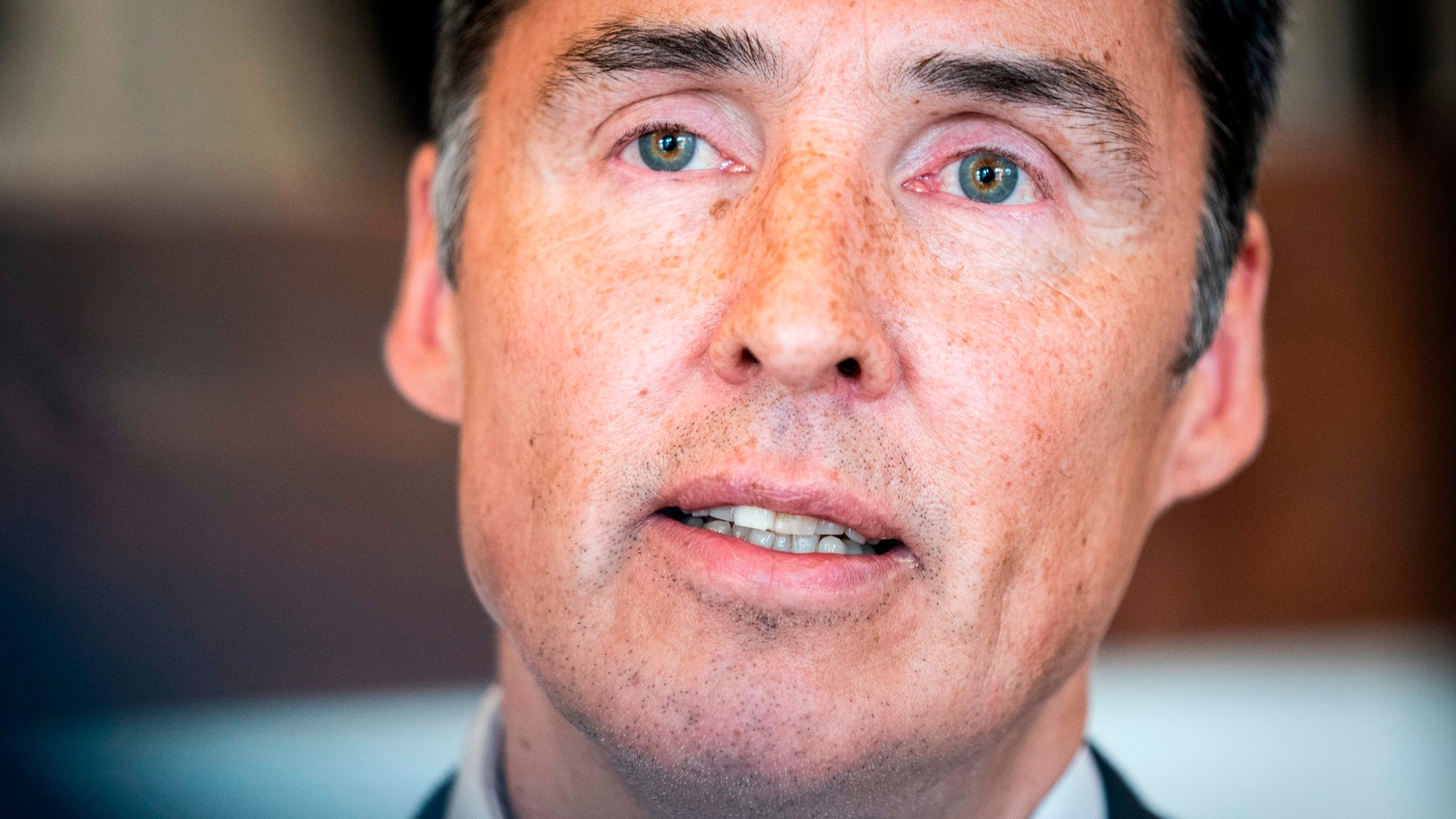
In a statement on the Government of Greenland’s website, Foreign Minister Steen Lynge said the closer relationship would be good for the territory’s economy.
“The new cooperation on civilian projects, with a geographical neighbor and friend, will be able to contribute positively to Greenland’s economic and educational development,” Lynge said.
Russia & China in the Arctic
Kofod invited Lynge and the Faroe Islands’ national board member for foreign affairs, Jenis av Rana, to participate in discussions on the Arctic. (The Faroe Islands is another autonomous territory within the Kingdom of Denmark.)
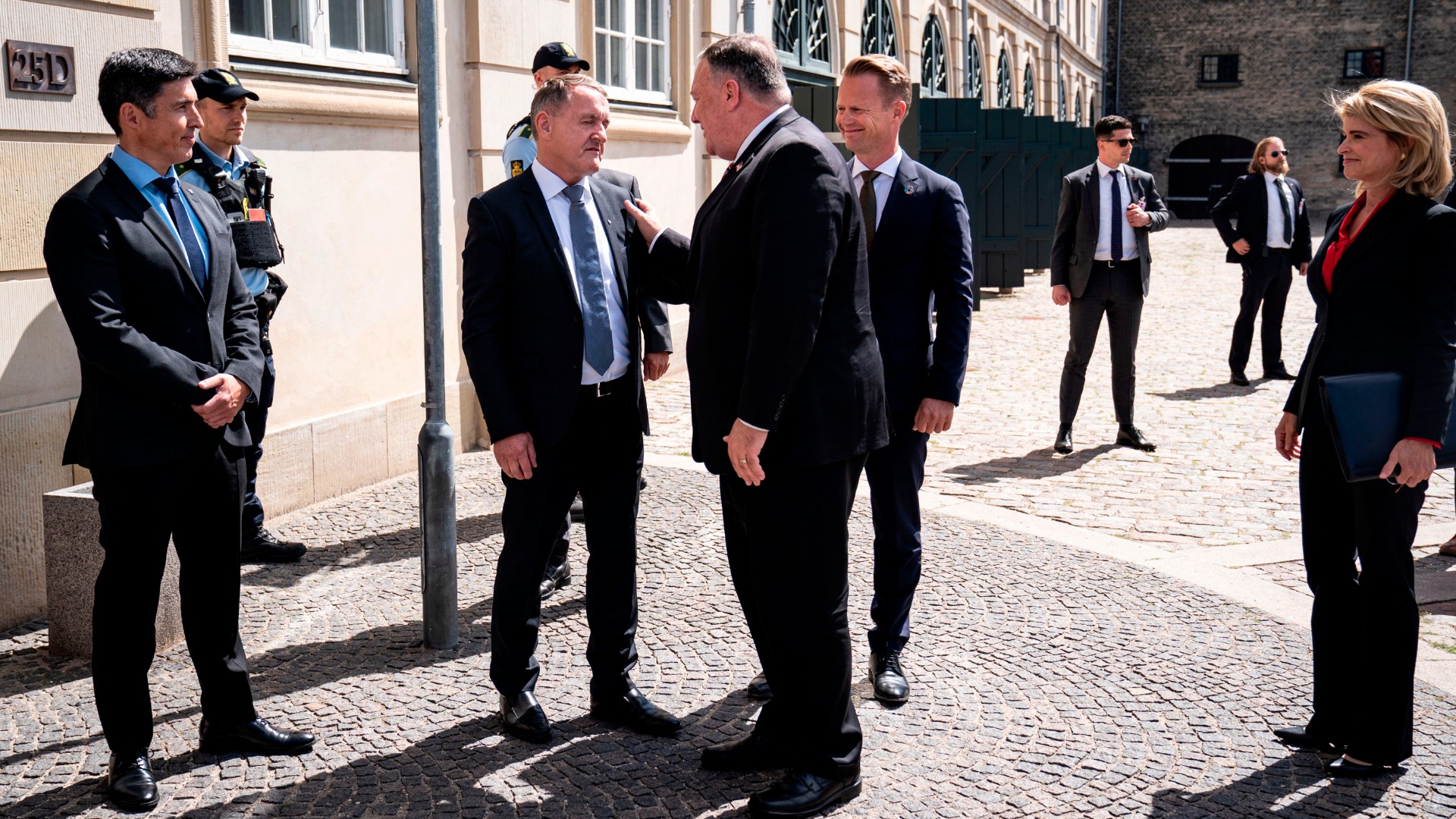
Besides pledging to continue cooperation on the Arctic Council, the international forum made up of Arctic nations and Arctic Indigenous groups, which works on sustainable development and environmental protection in the North, the foreign ministers discussed Russia and China’s activity in the Arctic.
“We are keenly aware of the increased global attention and military presence in the Arctic by Russia,” Kofod said. “We will continue to maintain and build situational awareness in the Arctic.”
At a press conference afterwards, Pompeo also raised concern about China’s activities in the North.
“Even in the Arctic, China has fancied themselves as a near-Arctic nation,” Pompeo said. “We have a responsibility to get that right for each of our own sovereign security issues, but, more broadly, for our collective security across the Atlantic as well.”
Write to Eilís Quinn at eilis.quinn(at)cbc.ca
Related stories from around the North
Canada: Canada’s long-term neglect of Arctic must stop says Senate report, Eye on the Arctic
Denmark: COVID-19 could delay Kingdom of Denmark’s Arctic strategy, Eye on the Arctic
Finland: Finland joins other Nordic countries in virtual tourism due to pandemic, Yle News
Iceland: Nordics should aim for common approach to China’s Arctic involvement says report, Eye on the Arctic
Norway: Norway strengthens its Arctic military in new defense plan as security concerns grow in the region, The Independent Barents Observer
Russia: Two Chinese rigs prepare for drilling in Russian Arctic waters, The Independent Barents Observer
Sweden: Sweden’s FM calls for more EU involvement in Arctic as country hosts EU Arctic Forum, Radio Sweden
United States: Trump advances new icebreaker plan, Alaska Public Media


